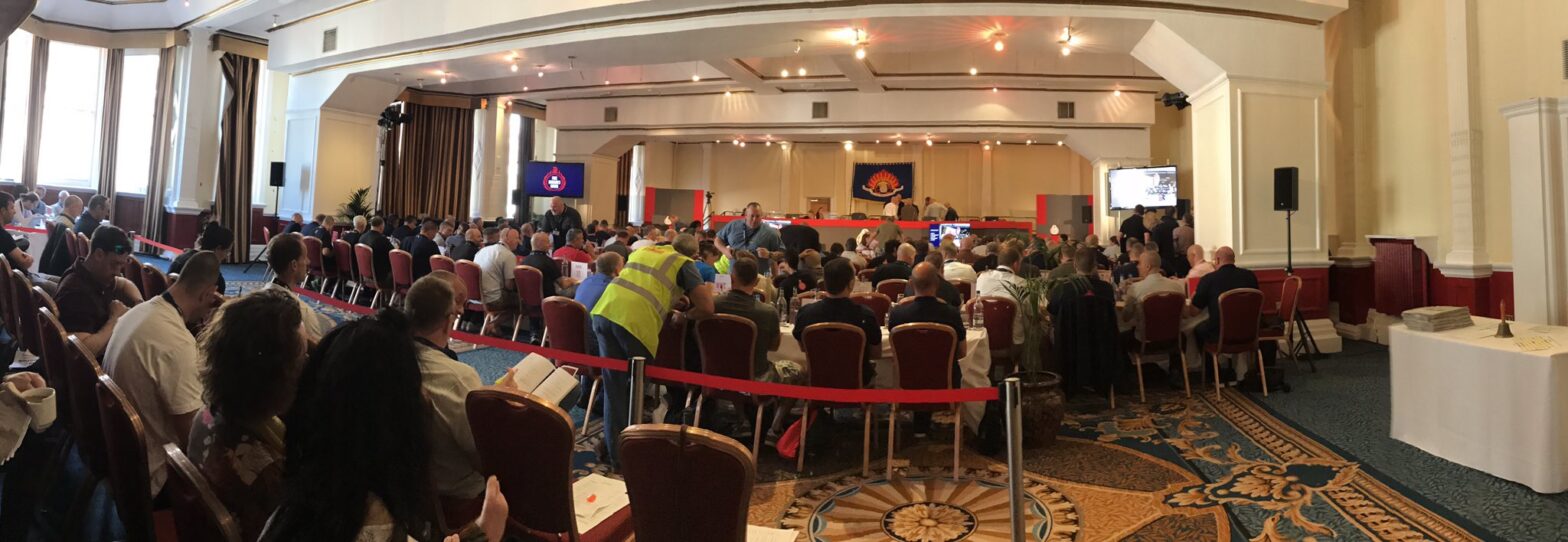A BID TO persuade the annual conference of the Fire Brigades Union (FBU) to proscribe Campaign For a Democratic FBU has failed.
Yesterday (23 May), this blog reported that an emergency resolution had been submitted to the conference – which is taking place in Blackpool this week – calling for our group to be outlawed on the grounds that our activities were ‘prejudicial to the interests of the union’. If passed, the resolution – which had been submitted by the Scottish delegation – would inevitably have resulted in a concerted witch-hunt against us.
However, after much to-ing and fro-ing during the day, the Scottish delegation eventually withdrew the resolution. Reports suggested that, when they learned of the proposed ban, several conference delegates were concerned that it would be seen as an attack on the freedom of members to organise and speak out against the actions and decisions of the leadership. There is every possibility, then, that the resolution would have been defeated on the floor of conference had it progressed to a vote.
There were even reports that members of the executive council (EC) – several of whom, it has to be said, are no fans of our group – were uneasy about supporting the resolution. Some were reportedly opposed to it because they felt it would give greater oxygen to Campaign For a Democratic FBU and backfire on the leadership.
Others were, by all accounts, genuinely concerned that the resolution would be seen as an attack on grassroots democracy and might fall if it was put to a vote. On that basis, some senior figures in the union were apparently keen to find a way out. There was even talk at one point of the union’s president, Ian Murray, ruling the resolution ‘out of order’ on some pretext. However, this would have been a highly-controversial move, as the union’s standing orders committee had already decided that the resolution was ‘in order’ – and it is ultimately the standing orders committee, and not the president, which has responsibility for the conference agenda.
In the end, though, the Scottish delegation pulled the resolution.
As well as calling for conference to agree that the activities of our group were ‘prejudicial to the interests of the union’ – and therefore a breach of the union’s rule book – the resolution had also demanded ‘that the EC and all committees of our union challenge the content and conduct of the Campaign For a Democratic FBU…’
Could it be that senior officials of the union were twitchy about supporting the resolution because they recognised privately that our blogs were rooted in truth and backed up by hard evidence, and the content of those blogs could not therefore be credibly challenged?
Could it be that these senior officials – including the general secretary – knew that we had invited them to take part in head-to-head debates with us, and therefore the resolution’s call for all officials to challenge us would mean that they could hardly continue to sidestep those invitations?
Could it be that these senior officials realised that if the resolution were allowed to be debated on the floor of conference it might have resulted in several delegates speaking out more generally against the authoritarian turn taking by the leadership over recent years?
Questions upon questions. What we know for certain is that the attempt to clamp down on rank-and-file democracy and dissent has failed. And that can only be a good thing.

